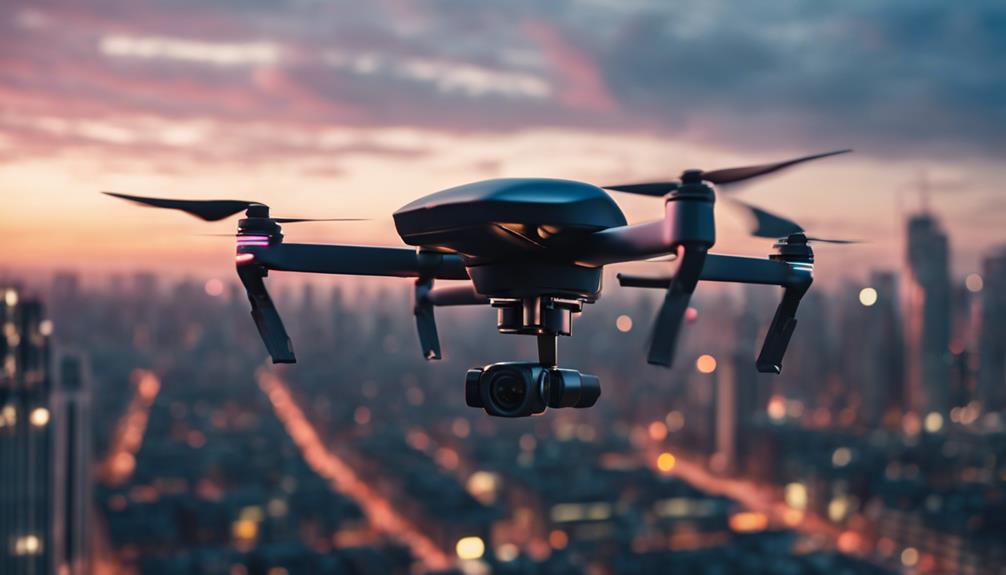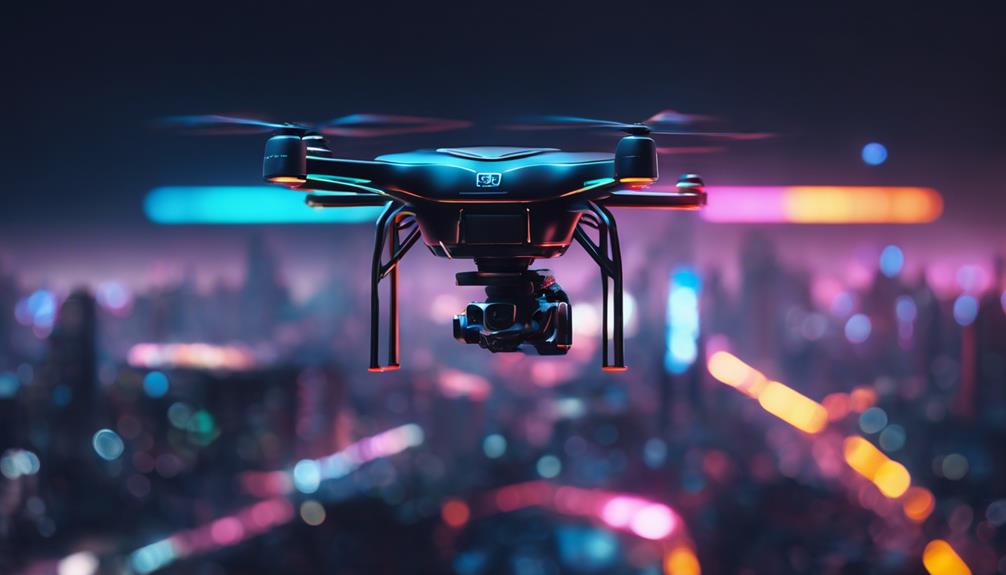
In today’s digital age, the lines between personal privacy and professional monitoring are increasingly blurred. Employees are rightfully concerned about the extent to which their employers can surveil their activities, particularly through tools like laptop cameras. As remote work becomes the norm, understanding the implications of such surveillance is crucial for both employees and employers. This article delves into the nuances of employee privacy, the technology enabling surveillance, and how employees can safeguard their personal space while navigating the complexities of modern work environments.
Understanding Employee Privacy vs. Employer Monitoring
Employee privacy is a fundamental right that should be respected; however, it exists within the context of workplace policies and expectations. Employers have a vested interest in ensuring productivity, safeguarding company assets, and maintaining a secure work environment. This often leads to the implementation of monitoring practices. While employees may perceive these measures as intrusive, it is essential to recognize that some level of monitoring is typically justified under the umbrella of maintaining workplace integrity.
On the other hand, the extent of monitoring raises significant ethical and legal questions. Employees may feel their right to privacy is compromised when employers employ invasive monitoring technologies, such as laptop cameras. Striking a balance between legitimate business interests and employee privacy rights is a crucial challenge that companies face in today’s increasingly digital workplace. Understanding these dynamics can empower employees to engage in meaningful discussions about surveillance policies within their organizations.
The Growing Concern: Surveillance in the Workplace
The rise of surveillance technology has heightened concerns about employee monitoring. A growing number of companies are utilizing software and hardware that track employee activities, including video and audio surveillance via laptop cameras. This trend is often justified by claims of increasing productivity and enhancing security. However, many employees feel anxious about being constantly watched, which can lead to decreased morale and trust between staff and management.
Moreover, the psychological impact of being surveilled can lead to a culture of fear and compliance rather than one of creativity and innovation. Employees may feel pressured to conform to expected behaviors, stifling their ability to express themselves freely. As concerns about workplace surveillance grow, discussions around ethical monitoring practices are becoming increasingly vital. Employers must recognize that transparency is key in fostering a healthy work culture that values both productivity and privacy.
How Employers Might Access Your Laptop Camera
Employers can access laptop cameras through various means, often without employees being fully aware. This access can be obtained through installed software that is explicitly indicated in company policies or through less transparent means, such as unauthorized applications. In today’s connected world, employees may unwittingly allow access to their cameras simply by agreeing to terms of service or by not updating their privacy settings.
Moreover, malware and spyware pose additional risks, as they can enable unauthorized access to laptop cameras. In some cases, companies may employ IT specialists to monitor devices for compliance and security reasons. This raises significant concerns about the ethical implications of such practices, especially if employees are not informed about the extent of monitoring occurring on their devices. Employers must approach this issue with a clear understanding of privacy implications and the responsibilities that come with access to employee data.
Legal Implications of Monitoring Employee Cameras
The legality of monitoring employee cameras varies significantly across jurisdictions. In many regions, employers are permitted to monitor work-related communications and activities, provided they have a legitimate business interest. However, laws regarding privacy and employee surveillance are complicated and can differ widely depending on local and national regulations. Employers must ensure they are compliant with these laws to avoid potential legal repercussions.
Furthermore, some countries require employers to inform employees about monitoring practices, including the use of cameras. Failure to disclose such information may lead to legal challenges and damage employee trust. It is essential for both employers and employees to stay informed about the legal landscape surrounding surveillance to navigate this complex issue responsibly. Ensuring that monitoring practices are both ethical and legal is vital for maintaining a respectful workplace environment.
Signs Your Employer Might Be Watching You
Employees may notice several signs that suggest their employer could be monitoring them through their laptop camera. For instance, unexpected behaviors such as the camera light activating without any apparent reason can be a red flag. Additionally, if employees encounter frequent security updates or installation of new software without clear communication, it may indicate monitoring practices at play.
Other signals may include sudden changes in company policies regarding digital privacy or increased focus on productivity metrics. Employees should remain aware of any shifts in workplace culture or communication that could suggest heightened surveillance measures. Recognizing these signs can empower employees to address their concerns with management and seek clarification on monitoring practices.
Protecting Your Privacy: Tips for Employees
To safeguard their privacy, employees should take proactive measures. One straightforward step is to cover laptop cameras when not in use. Physical barriers, such as camera covers or stickers, can effectively block unauthorized access. Additionally, employees should familiarize themselves with the privacy settings on their devices and regularly review app permissions to prevent unwanted access.
Staying informed about company policies regarding surveillance is crucial. Employees should engage in conversations with human resources or management about their rights and the extent of monitoring practices. By fostering an open dialogue, employees can better understand the balance between productivity and privacy, advocating for policies that respect individual rights while meeting company needs.
The Role of Company Policies in Surveillance Practices
Company policies play a pivotal role in defining the parameters of surveillance in the workplace. Clear and transparent policies should outline what monitoring practices are in place, including the use of laptop cameras. This not only helps employees understand their rights but also sets expectations for how surveillance will be conducted and under what circumstances.
Furthermore, well-structured policies can mitigate potential legal risks for employers. By ensuring that employees are aware of monitoring practices, companies can foster a culture of trust and accountability. Regularly reviewing and updating these policies in accordance with technological advancements and legal requirements is essential for maintaining a balanced approach to employee monitoring.
Technologies That Enable Camera Monitoring at Work
Various technologies enable employers to monitor employee cameras, ranging from built-in software to advanced surveillance systems. Remote access software can allow employers to view screens and, in some cases, activate cameras without the employee’s knowledge. Additionally, some companies use integrated monitoring systems that combine video surveillance with performance tracking tools for a comprehensive view of employee productivity.
As technology evolves, so do the methods of surveillance. Advanced analytics can even assess employee interactions during video calls, providing employers with additional insights into employee behavior. This technological evolution raises ethical questions about the limits of monitoring and the potential for misuse. Employers must tread carefully, ensuring that they harness technology to enhance productivity without infringing on employee privacy rights.
What to Do if You Suspect You’re Being Spied On
If employees suspect that they are being monitored through their laptop cameras, it is crucial to act cautiously. First, they should document any unusual activity, such as unexpected software installations or camera activity. This documentation will be essential if they decide to approach management or human resources about their concerns.
Next, employees should review their company’s privacy policies and familiarize themselves with their rights regarding surveillance. Engaging in open conversations with supervisors or HR can also provide clarity on monitoring practices. Employees have the right to voice their concerns and seek assurances that their privacy is being respected in the workplace.
The Future of Workplace Surveillance: Trends to Watch
As technology continues to advance, the future of workplace surveillance will likely evolve in ways that challenge traditional concepts of privacy. Emerging technologies, such as artificial intelligence and machine learning, may enable employers to monitor employee interactions and behaviors more comprehensively and seamlessly. This evolution raises ethical questions about the extent to which monitoring can be justified in the name of productivity and security.
Moreover, as remote work becomes permanent for many organizations, the need for clear guidelines and ethical approaches to surveillance will increase. Employers will need to balance the benefits of monitoring with the imperative of respecting employee privacy. The conversation surrounding workplace surveillance will likely become more prominent, calling for collaboration between employers and employees to establish acceptable practices that prioritize trust and integrity.
In conclusion, the question of whether employers can spy on employees through laptop cameras is complex and multifaceted. As the landscape of workplace surveillance evolves, it is imperative for both employers and employees to engage in open discussions about privacy rights and monitoring practices. By understanding the legal implications, recognizing the signs of surveillance, and taking proactive measures to protect privacy, employees can navigate the modern workplace with greater confidence. Ultimately, fostering a culture of transparency and trust is essential for ensuring that workplace surveillance serves its intended purpose without compromising individual rights.




